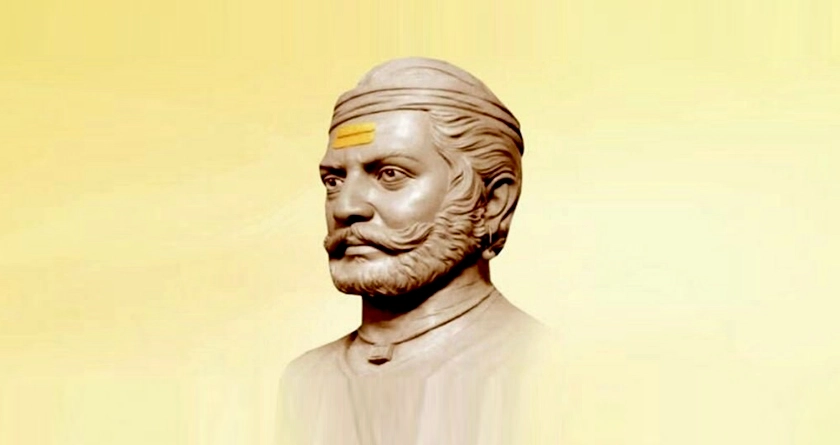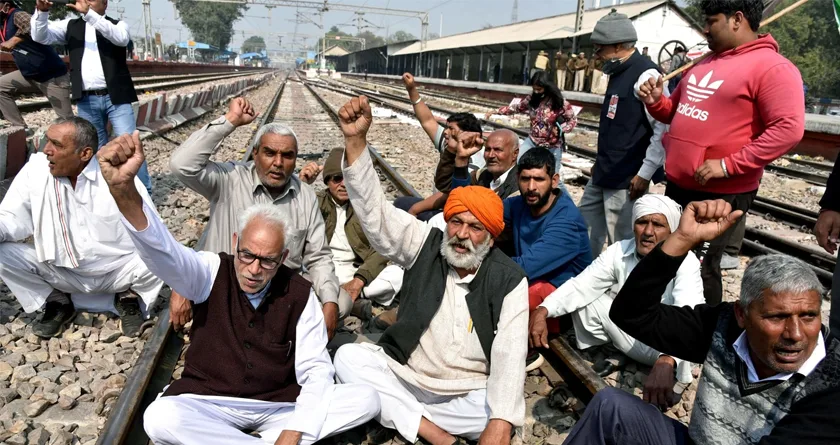
Umaji Naik is a liberator who fought the British.
News of History
Wednesday, 14th July 2021
Many patriots gave their lives in the sacred yagya of India's freedom movement; some are recognized, while others are forgotten. Umaji Naik is one of these unsung heroes. The British took control of India in the early nineteenth century. Many individuals praised British rule because they saw it as beneficial to them.
However, some brave and valiant individuals disagreed with this notion and initiated an armed rebellion against the British, with Umaji Naik in Maharashtra being the most renowned of them. He battled to establish a kingdom based on the ideas of Chhatrapati Shivaji Maharaj, even if it was just for a short time.
The Ramoshi tribe belonged to Umaji Naik. Ramoshis resided in the depths of the jungle and have a long history dating back to the Ramayana. Ramoshis served in the Maratha army's intelligence section throughout the 17th century. Chhatrapati Shivaji Maharaj's intelligence department was headed by Bahirji Naik, a Ramoshi.
Ramoshis backed Bajirao II in the last attempt to save the Maratha Empire. The population of Ramoshis was at 18,000 at the time, with 2,000 living in the Pune and Satara regions.
Following the defeat of the Marathas in the Third Anglo-Maratha War, the British seized all Maratha lands and deported all Maratha personnel. Ramoshis, like others, lost their jobs. As a result, they became reliant on forest resources. The Ramoshis, on the other hand, were subjected to British regulations. This enraged them, and they began organising movements to drive the British out of India.
Chittur Singh, a Satara native, took over as their leader at first. Ramoshis gained some forts under his leadership. After him, the leadership fell to Purandar's Umaji Naik.
Umaji and his ally Sattu Naik had a reputation for bravery and heroism. Both were arrested after looting the treasures of their landowners. Umaji became increasingly active after his release from prison. He assassinated Kotwal, which alarmed the police force. Employees of the British government were enraged as a result of the occurrence. Despite the fact that it was under strong security, he robbed a government treasure in February 1824. Due to the chaos caused by Umaji, many government employees in Pune's south-eastern area have ceased visiting.
The British administration was unable to prevent the Ramoshis from looting on a regular basis. Umaji stormed a police station in Jejuri in October 1826, killing officials and looting all weapons and ammunition.
Mr. Robertson, the Collector of Pune District, made a report to the British administration stating
“The general public is anticipating major political shifts. These Ramoshis incite hatred toward Europeans and wish to expel them, and the general people is quite supportive of them. Europeans would be destroyed on the battlefield by Ramoshis, and rebel Umaji will rebuild the Maratha Empire as Chhatrapati Shivaji did.” Source (P.D. 1827 Vol 15/270 pp.55-59)
And then this statement came true. Ramoshis quickly built a little kingdom under Umaji's leadership. The British sought to apprehend Umaji and place a Rs 5,000 reward on his head. (Volume 15/270, pages. 91-93, P.D. 1827). (P.D. stands for Reference from Maharashtra's Daftarkhana).
In November 1827, Ramoshis attempted to reinstate all those who had been ousted by the British as kings. Their mission was sponsored by the king of Kolhapur. However, when the British learned of the plan, the Ramoshis decided to abandon the mission. Umaji intended to send his lawyers to Scindia and Holkars in order to form an anti-British coalition. The British learned of his plan before he could carry it out, thus it was abandoned.
Umaji began holding a daily durbar after establishing his own kingdom. Those who supported the British were harshly punished by Ramoshis. They never acted inappropriately towards ladies. Employees from lower castes worked for them. They were always on the side of the common man, often donating their own money to the impoverished.
The general public overwhelmingly backed Ramoshis. They provided information on army movements as well as providing shelter to Ramoshis. To keep the regular people from supporting the Ramoshis, the British threatened them with grave repercussions if they did, and even granted farmers tax breaks to win them over.
The British were not going to let a challenge to their supremacy go unanswered, so they retaliated against the Ramoshis with force. To assist Captain Davis, they deployed the troops under Captain Spiller's command. The British government assigned Captain Davis to assist Captain Spiller in capturing Umaji Naik. They dispatched an army battalion from Kolhapur to Jejuri and enlisted the help of locals to fight the Ramoshis. People, on the other hand, continued to back the Ramoshis.
The Ramoshi movement grew over the presidency of Pune, Satara, and Bhor. They continued to plunder the government's coffers and steal government funds. The Ramoshis advised the British administration to request a treaty of peace. Umaji wrote a letter to the British in which he stated
“Come deal with us; if you don't, this rebellion will spread throughout the country.” Thousands of such movements will spread from Satpuda to Parashuram, leaving you helpless.”
Due to the rejection of the treaty proposal, the Ramoshis went on a rampage against Britishers throughout the presidency of Pune, Satara, Wai, and Bhor. Kolhapur and the Konkan region have become hotspots. Captains Davis and Spiller worked hard but failed to capture Umaji. Captain Elphinstein was defeated by Ramoshis.
He beheaded four police officers and sent their skulls to the British to terrorise them. This had a big impact and was well received by the general public. Umaji even overcame Malcolm, the British government's most capable official. (In numerous skirmishes, Captain Malcolm failed to capture Umaji Naik, according to the aforementioned book.)
Umaji signed a deal with the British in 1829. The British handed him 120 Bigha land in Sakurdi and gave other Ramoshis jobs under the conditions of the treaty. Umaji became a government employee after the treaty was signed. After a year, however, Umaji collected his army and declared war on the British. The British were dead set on finishing Umaji this time.
The News Talkie Bureau
Source
eSamsriti











